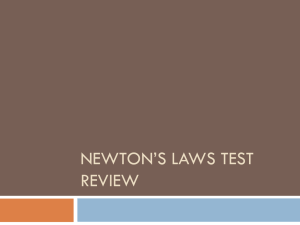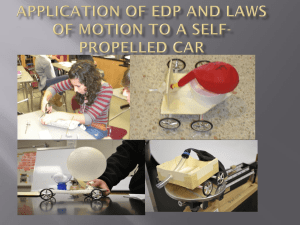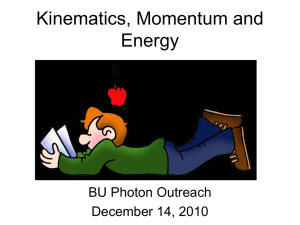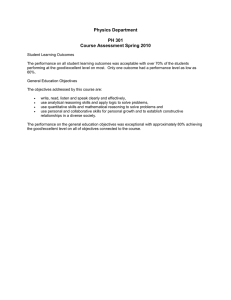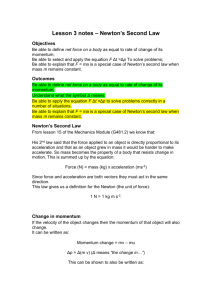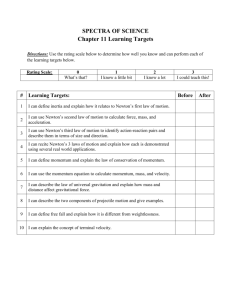Newton’s Laws Of Motion (PS. 10b) Test Date: _________________
advertisement
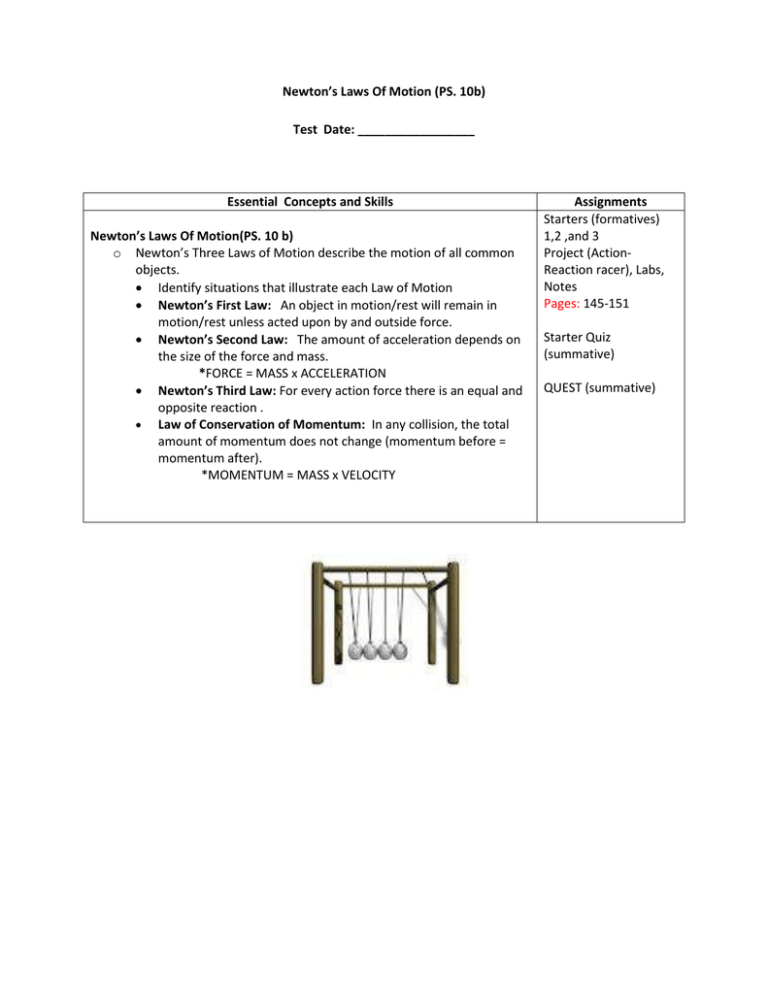
Newton’s Laws Of Motion (PS. 10b) Test Date: _________________ Essential Concepts and Skills Newton’s Laws Of Motion(PS. 10 b) o Newton’s Three Laws of Motion describe the motion of all common objects. Identify situations that illustrate each Law of Motion Newton’s First Law: An object in motion/rest will remain in motion/rest unless acted upon by and outside force. Newton’s Second Law: The amount of acceleration depends on the size of the force and mass. *FORCE = MASS x ACCELERATION Newton’s Third Law: For every action force there is an equal and opposite reaction . Law of Conservation of Momentum: In any collision, the total amount of momentum does not change (momentum before = momentum after). *MOMENTUM = MASS x VELOCITY Assignments Starters (formatives) 1,2 ,and 3 Project (ActionReaction racer), Labs, Notes Pages: 145-151 Starter Quiz (summative) QUEST (summative) LAWS OF MOTION & MOMENTUM STUDY GUIDE FIRST LAW 1. 2. 3. 4. State the first law of motion. What factor affects the inertia of an object? If inertia is increased, an object will tend to ….. Compare the inertia of two objects, each with a different mass. SECOND LAW 5. Name the two factors that affect acceleration. 6. List two ways that acceleration can be decreased. 7. Use the second law to explain why objects accelerate towards the ground at the same rate. (when in a vacuum) 8. What force is needed to accelerate a 250 kg object 5 m/s/s? THIRD LAW 9. State the third law of motion. 10. Explain the third law of motion by using an everyday application. 11. If action-reaction force pairs are equal in size, opposite in direction, why don’t they cancel each other? 12. Using the game of pool, identify action-reaction forces. MOMENTUM 13. Identify two ways that momentum can be increased. 14. Relate the conservation of momentum to a game or sport you enjoy. 15. Compare the momentum before and after a collision.
